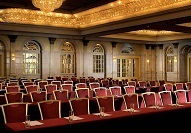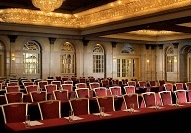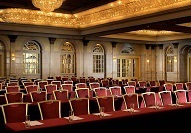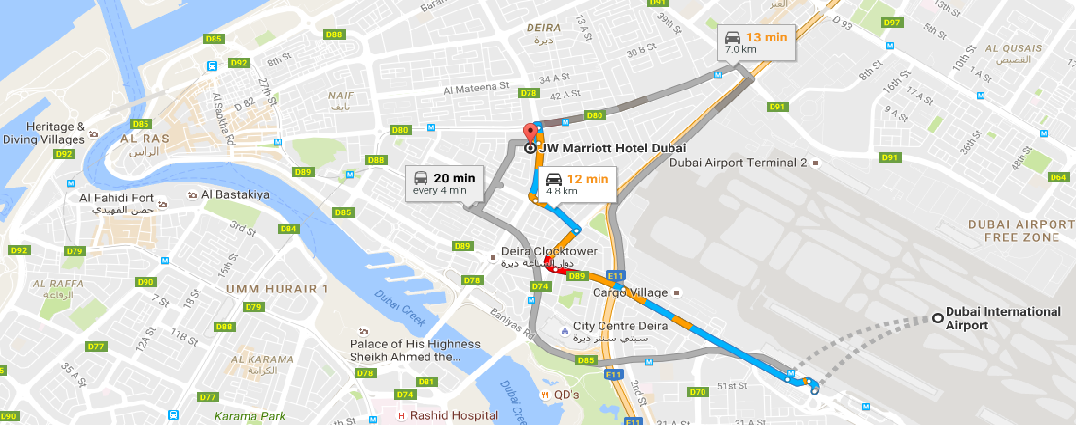Venue & Hospitality
JW Marriott Hotel Dubai
Abu Baker Al Siddique Rd, Deira, near Hamarain Shopping Center
Dubai
United Arab Emirates
Conference Dates: December 08-10, 2016
Hotel Services & Amenities
- Audio/Visual Equipment Rental.
- Business Center.
- Business Phone Service.
- Complimentary Printing Service.
- Express Mail.
- Fax.
- Meeting Rooms.
- Office Rental.
- Photo Copying Service.
- Secretarial Service.
- Telex.
- Typewriter.
- Video Conference.
- Video Messaging.
- Video Phone.
- ATM.
- Baggage Storage.



Transportation
Driving Directions to
Dubai International Airport – Dubai, United Arab Emirates
From the airport towards Deira, past the airline centre (DNATA) traffic light, towards clock tower roundabout. Turn right at the clocktower, hotel is on the left-hand side.
Sharjah International Airport - SHJ
Exit Right onto Al Dhaid Road, follow signs to Dubai/Abu Dhabi. Left on Emirates Road. Right on Airport Road. At Clock Tower, take a Right onto Abu Baker Al Siddique Road. On your left will be the Hamarain Shopping Centre which is adjacent to the hotel. Turn Left onto small side street right after you see Hamarain Shopping Centre.
JW Marriott Hotel Dubai
Route Map

About City
Dubai is the most populous city in the United Arab Emirates (UAE).It is located on the southeast coast of the Persian Gulf and is one of the seven emirates that make up the country. Abu Dhabi and Dubai are the only two emirates to have veto power over critical matters of national importance in the country's legislature. The city of Dubai is located on the emirate's northern coastline and heads up the Dubai-Sharjah-Ajman metropolitan area. Dubai is to host World Expo 2020.
Dubai has emerged as a global city and business hub of the Middle East.It is also a major transport hub for passengers and cargo. By the 1960s, Dubai's economy was based on revenues from trade and, to a smaller extent, oil exploration concessions, but oil was not discovered until 1966. Oil revenue first started to flow in 1969.Dubai's oil revenue helped accelerate the early development of the city, but its reserves are limited and production levels are low: today, less than 5% of the emirate's revenue comes from oil.The emirate's Western-style model of business drives its economy with the main revenues now coming from tourism, aviation, real estate, and financial services.Dubai has recently attracted world attention through many innovative large construction projects and sports events. The city has become iconic for its skyscrapers and high-rise buildings, in particular the world's tallest building, the Burj Khalifa. Dubai has been criticised for human rights violations concerning the city's largely South Asian workforce.Dubai's property market experienced a major deterioration in 2008–09 following the financial crisis of 2007–08, but the emirate's economy has made a return to growth, with a projected 2015 budget surplus.

